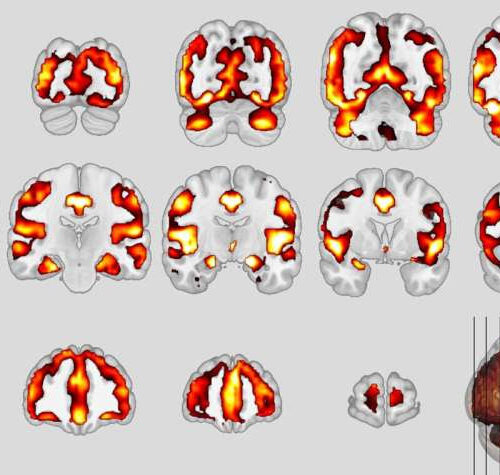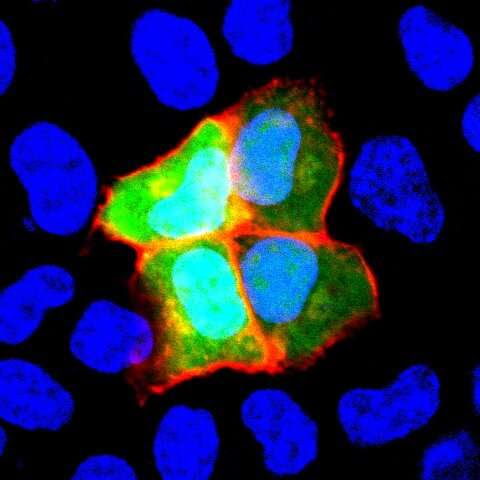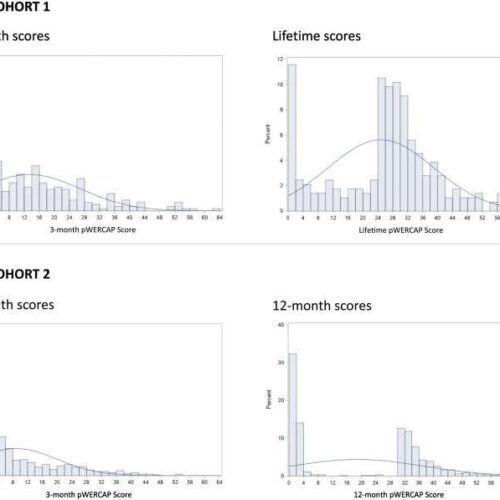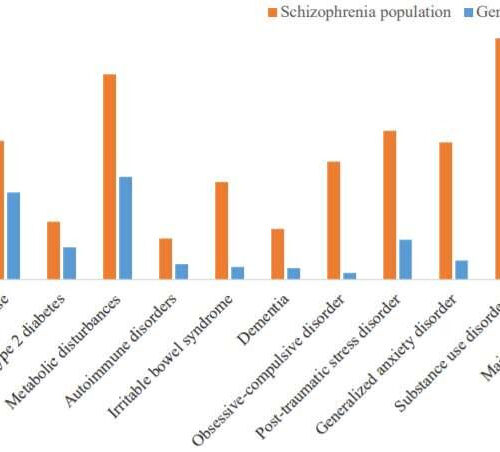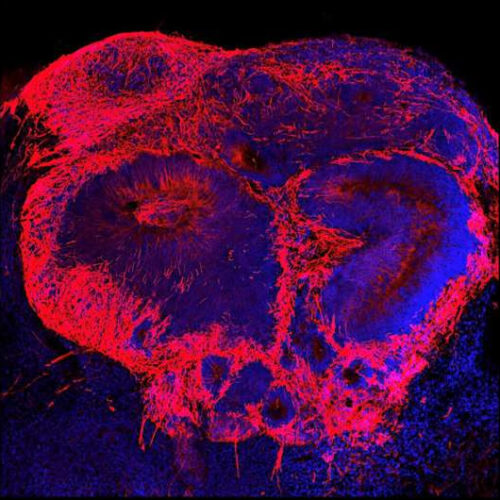by Anke Schlee, Max Planck Society Neuroanatomical patterns of schizophrenia. Credit: Koutsouleris Researchers have, for the first time, compared schizophrenia and frontotemporal dementia—disorders that are both located in the frontal and temporal lobe regions of the brain. The idea can be traced back to Emil Kraepelin, who coined the term “dementia praecox” in 1899 to describe...
Tag: <span>Schizophrenia</span>
Body versus brain: New evidence for an autoimmune cause of schizophrenia
by Tokyo Medical and Dental University NCAM1 is induced only in green cells (HeLa cells). Serum from patients with anti-NCAM1 autoantibody react only to green cells (framed in red). Credit: Department of Psychiatry and Behavioral Sciences, TMDU Schizophrenia is a disorder that affects how people act, think, and perceive reality. It is often very difficult...
Researchers discover genetic mechanism associated with autism, schizophrenia, and other conditions
Researchers at Tel Aviv University (TAU) have unraveled a mechanism shared by mutations in the genes ADNP and SHANK3, which cause autism, schizophrenia, and other conditions. The researchers also found that an experimental drug previously developed in their lab is effective in lab models for these mutations and may be suitable for treating a range of rare syndromes...
Bipolar Breakthrough
Lithium’s main treatment for bipolar disorder was approved a half-century ago but didn’t help all patients and has significant side effects. In part, little progress has been made in finding better therapies because scientists don’t fully understand how the condition arises or exactly how lithium improves symptoms when it does work. A genetic study involving...
A path to promising treatments for schizophrenia through gene variants
by Indrani Mukherjee, Broad Institute of MIT and Harvard Morgan Sheng, core institute member and co-director of the Stanley Center for Psychiatric Research, is studying the function of genes linked to schizophrenia. Credit: Maria Nemchuk, Broad Communications Over the last 15 years, researchers at the Stanley Center for Psychiatric Research at the Broad Institute of...
Identifying young people at high risk of schizophrenia with a 16-question screening tool
by Jim Dryden, Washington University School of Medicine in St. Louis Distribution of p-WERCAP scores across the two youth cohorts. Figures depict the prevalences of different p-WERCAP score ranges. Cohort 1 participants completed WERCAP screens with 3-month and lifetime symptom timeframes (A). Cohort 2 participants completed WERCAP Screens with 3-month and 12-month symptom timeframes (B)....
Almost all family interventions can prevent relapse in schizophrenia
Almost all family intervention models can prevent relapse in schizophrenia, according to a systematic review and meta-analysis published in the March issue of The Lancet Psychiatry. Alessandro Rodolico, M.D., from the University of Catania in Italy, and colleagues conducted a systematic review and network meta-analysis to examine family intervention models aimed at preventing relapse in patients with schizophrenia. Eleven family intervention models...
Research reveals new links between brain over-activity and schizophrenia symptoms
by University of Nottingham Credit: Pixabay/CC0 Public Domain New research has shown that over-activity in a specific area of the brain is linked to certain symptoms of schizophrenia, opening up possibilities for the development of more targeted treatments. Researchers from the University of Nottingham found that faulty inhibitory neurotransmission and abnormally increased activity in the...
Genetic correlations between schizophrenia and eating disorders illuminated
by Karolinska Institutet Prevalence of common somatic and psychiatric comorbidities in individuals with schizophrenia and in the general population. Credit: https://openarchive.ki.se/xmlui/handle/10616/47823 Schizophrenia and eating disorders (EDs) are complex traits with considerable somatic and psychiatric morbidity, affecting 0.4–1% and 9% of the population, respectively. Risk for both is predominantly from genetic sources—64–81% for schizophrenia and 41–83% for...
‘Mini-brains’ provide clues about early life origins of schizophrenia
by Weill Cornell Medical College Increasing levels of a potential disease factor results in additional brain cells (red) in a schizophrenia brain organoid. Credit: Dr. Michael Notaras. Multiple changes in brain cells during the first month of embryonic development may contribute to schizophrenia later in life, according to a new study by Weill Cornell Medicine...

